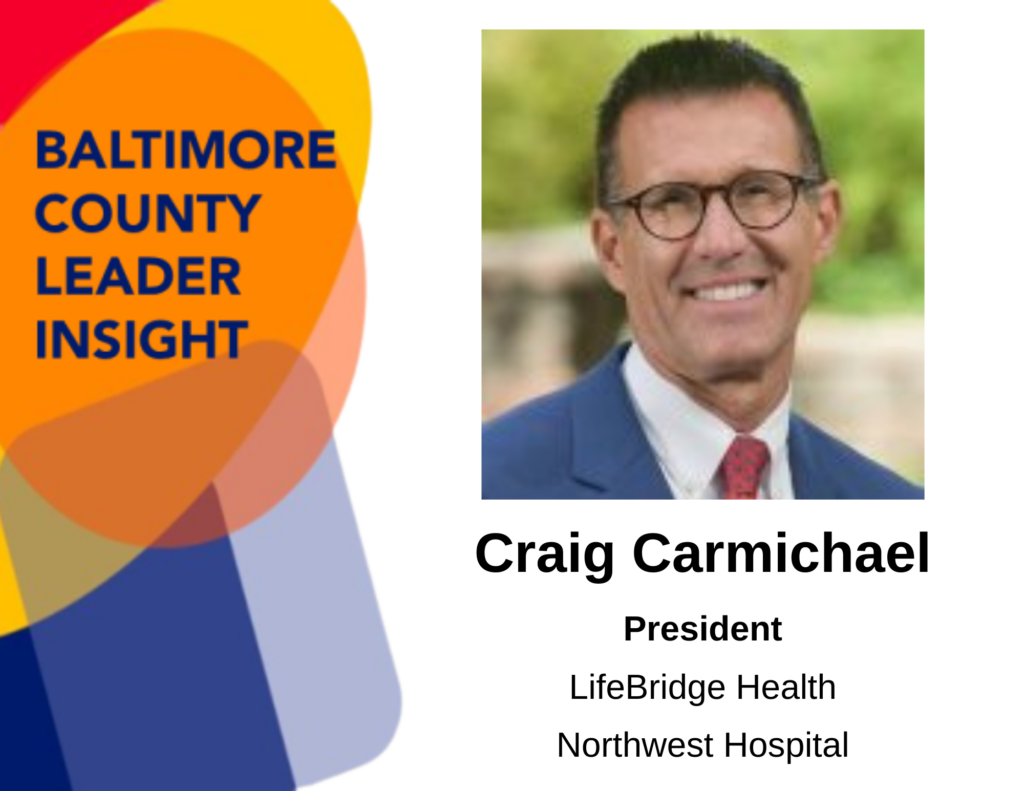
A Special Interview: March 2024
This month, the LBC Class of ’24 explored the state of healthcare after a pandemic, emphasizing the impact of mental health on the workforce. As the retreat host and a healthcare leader, what do you think Northwest’s greatest accomplishment has been related to supporting frontline healthcare workers?
At Northwest, we have taken the necessary steps to create a supportive work environment for our frontline caregivers that continues supporting the workforce’s well-being, safety, and mental health. We have achieved this through increased visibility of all our leaders and transparency with our staff. To address staffing shortages, we have recognized the challenges with recruitment of clinical staff and created a pipeline of international nurses through 2026 to meet our needs. At Northwest, we have focused on improving our work environments to ensure that our team members have the necessary tools to perform their jobs effectively. We value staff feedback on how we can improve our work environment.
Additionally, we honor, celebrate and recognize our team members all year long through various employee events, celebration weeks and recognition programs. Each employee recognized through our recognition programs has their picture publicly posted on our “Wall of Fame” and are introduced at our monthly management team meetings.
Apart from pandemic-related stressors, our workforce also faces an increase in workplace violence. To keep our team members safe, we have executed various strategies and implemented our “Caring for the Caregiver” program to provide support to staff who stressful events have impacted.
What strategies does Northwest employ to ensure quality service to the community despite challenges in the workforce?
At Northwest Hospital, our commitment to delivering exceptional care to our community is unwavering. We prioritize safety, timeliness, effectiveness, efficiency, patient-centeredness, inclusivity, and equity in all aspects of our service. Through our Zero Harm program, we strive to ensure that every patient receives care in an environment dedicated to healing and well-being.
Recognizing the dynamic landscape of the healthcare industry and the ongoing challenges related to workforce shortages, we are dedicated to building highly reliable processes that enable us to meet and exceed the expectations of our community. To this end, we have developed a comprehensive toolkit of Quality Excellence initiatives aimed at establishing a sustainable foundation for driving continuous improvement in patient care quality outcomes.
Our toolkit includes strategic planning, accountability tools such as RACI (responsible, accountable, consulted, informed) matrices, quarterly quality summits, GEMBA walks, and a daily Safety Huddle. These mechanisms allow us to address care quality concerns in real time and foster a culture of ongoing process enhancement.
Central to our strategy is a relentless focus on “Metrics that Matter,” which ensures that our efforts remain aligned with the most critical indicators of care quality outcomes. We assign executive leaders to provide dedicated support and resources for each identified metric, such as improving mortality and survival rates, preventing patient readmissions, and maintaining a safe care environment through adherence to our SPIRIT values (Service, Performance, Innovation, Respect, Integrity, and Teamwork).
Furthermore, we recognize the importance of extending high-quality care beyond the hospital walls. Through a comprehensive community health needs assessment conducted via community member surveys, we have identified key health, social, and environmental concerns within our community. Action plans are being developed to address these needs, ensuring that we provide the best possible care to the Northwest Hospital Community.
How can leaders in the community outside of the healthcare field support their local healthcare providers?
Community leaders must continuously educate themselves about the healthcare system and it’s functioning so that they can extend their support to local healthcare providers. Understanding the issues impacting the communities we serve is crucial, as the challenges vary throughout the state. Knowledge about the current state of healthcare, awareness of the perspectives of those working in the field and keeping track of the legislation introduced annually are all important in driving positive change for the future.
In addition, healthcare organizations always look for ways to provide outreach and better serve communities. You can get involved by participating in a program, supporting a health event, or joining a patient and family advisory council, among other ways.
What life experience has most shaped who you are as a leader?
Growing up on a large dairy farm in Northern Michigan, I worked long hours alongside my father and older brothers. It gave me a unique understanding and appreciation of the commitment and dedication it takes to be successful. My mother and father were very influential in my life, teaching many of life’s values including “getting the job done right” and being proud of what we were able to accomplish through effort, perseverance, and teamwork.
In your opinion, what personal trait is most important to being a good leader and why?
The willingness to listen to others and learn from their wisdom is foundational to being a good leader. I learn every day when I round as I talk with employees and listen to their challenges. It is critical to clearly understand what is seen through our employees’ eyes and how we can improve their work environment. Weekly, our leaders actively participate in “GEMBA” walks. We go to departments to learn about their challenges, goals and various initiatives and how we can better support their work. Essentially this equates to leading the team by setting the example.
